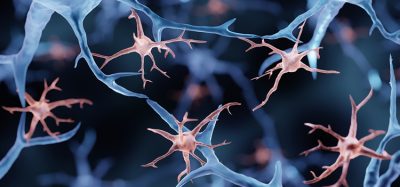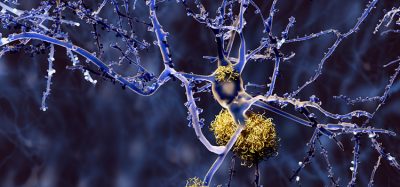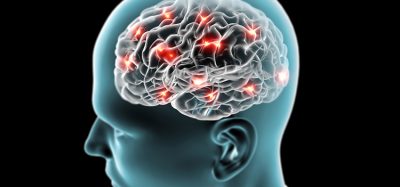Grant to fund development of vaccines to prevent dementia
Posted: 7 January 2025 | Drug Target Review | No comments yet
Researchers at Washington University are developing a vaccine using nanofiber technology to prevent dementia, offering a safer and more effective alternative to current treatments.


Researchers at Washington University in St. Louis have secured a significant $2.9 million grant from the National Institute on Aging, part of the National Institutes of Health (NIH), to support the development of vaccines aimed at preventing dementia. The innovative project will focus on training the body’s immune system to clear harmful protein accumulations associated with Alzheimer’s disease and frontotemporal dementia.
Alzheimer’s disease and frontotemporal dementia are progressive and debilitating conditions, caused by the build-up of misfolded proteins like amyloid beta and tau in the brain. Current Alzheimer’s therapies, which target these protein accumulations with engineered antibodies, have shown limited success, with some treatments also causing adverse effects. Additionally, the high costs associated with antibody therapies make them inaccessible for many.
In response to these challenges, Washington University’s researchers, Dr Jai Rudra, an associate professor of biomedical engineering, and Dr Meredith Jackrel, an associate professor of chemistry, are pioneering a new approach. Rather than using engineered antibodies, their team aims to create vaccines that stimulate the immune system to produce its own anti-amyloid beta and anti-tau antibodies.
Reduce preclinical failures with smarter off-target profiling
24 September 2025 | 15:00PM BST | FREE Webinar
Join this webinar to hear from Dr Emilie Desfosses as she shares insights into how in vitro and in silico methods can support more informed, human-relevant safety decisions -especially as ethical and regulatory changes continue to reshape preclinical research.
What you’ll learn:
- Approaches for prioritizing follow-up studies and refining risk mitigation strategies
- How to interpret hit profiles from binding and functional assays
- Strategies for identifying organ systems at risk based on target activity modulation
- How to use visualization tools to assess safety margins and compare compound profiles
Register Now – It’s Free!
“Nanofibers have unique properties that make them attractive for making antibodies to tau and amyloid beta proteins, and they don’t cause inflammation like other adjuvants.
One key aspect of the project is the use of Rudra’s unique nanofiber vaccine platform, which has been developed to address the ongoing issue of inflammation in dementia therapies. Rudra explained that past trials used potent adjuvants to prompt the immune system to target amyloid beta. However, this often triggered harmful inflammation, which could be more damaging than helpful. By contrast, the nanofiber platform does not cause the same inflammatory response, making it a safer and potentially more effective option. “Nanofibers have unique properties that make them attractive for making antibodies to tau and amyloid beta proteins, and they don’t cause inflammation like other adjuvants,” Rudra said.
Jackrel, who is also involved in the project, highlighted the importance of avoiding inflammation in the brain, noting that past dementia treatments have failed partly due to this very issue. The team believes their nanofibers offer a promising strategy to counter this challenge. “The noninflammatory nature of these is a good strategy to counter that,” Jackrel added.
The research team, working alongside WashU Medicine researchers, will test the vaccine on transgenic mice models that mimic human dementia. The study will explore both preventive and post-symptom treatments. Rudra emphasised that early intervention is likely to be more effective, as treating existing amyloid and tau clumps in symptomatic patients may prove too difficult. “Disaggregating them is going to be very challenging,” Rudra said. This approach aligns with ongoing efforts at Washington University to detect neurodegenerative diseases earlier. In addition to the vaccine research, other projects are exploring blood tests for early detection, highlighting the need for a multifaceted approach to tackling dementia and other neurodegenerative conditions. “Dementia and neurodegeneration are not one single disease or stem from one single source, so it will take a multipronged approach,” Jackrel concluded.
Through this pioneering work, Washington University hopes to significantly advance the fight against dementia, offering new avenues for prevention and treatment that could benefit millions worldwide.
Related topics
Antibodies, Bioengineering, Central Nervous System (CNS), Disease Research, Vaccine development
Related conditions
Alzheimer's disease (AD), Dementia, frontotemporal dementia (FTD)
Related organisations
McKelvey School of Engineering, National Institute on Aging, Washington University in St. Louis
Related people
Dr Jai Rudra, Dr Meredith Jackrel








